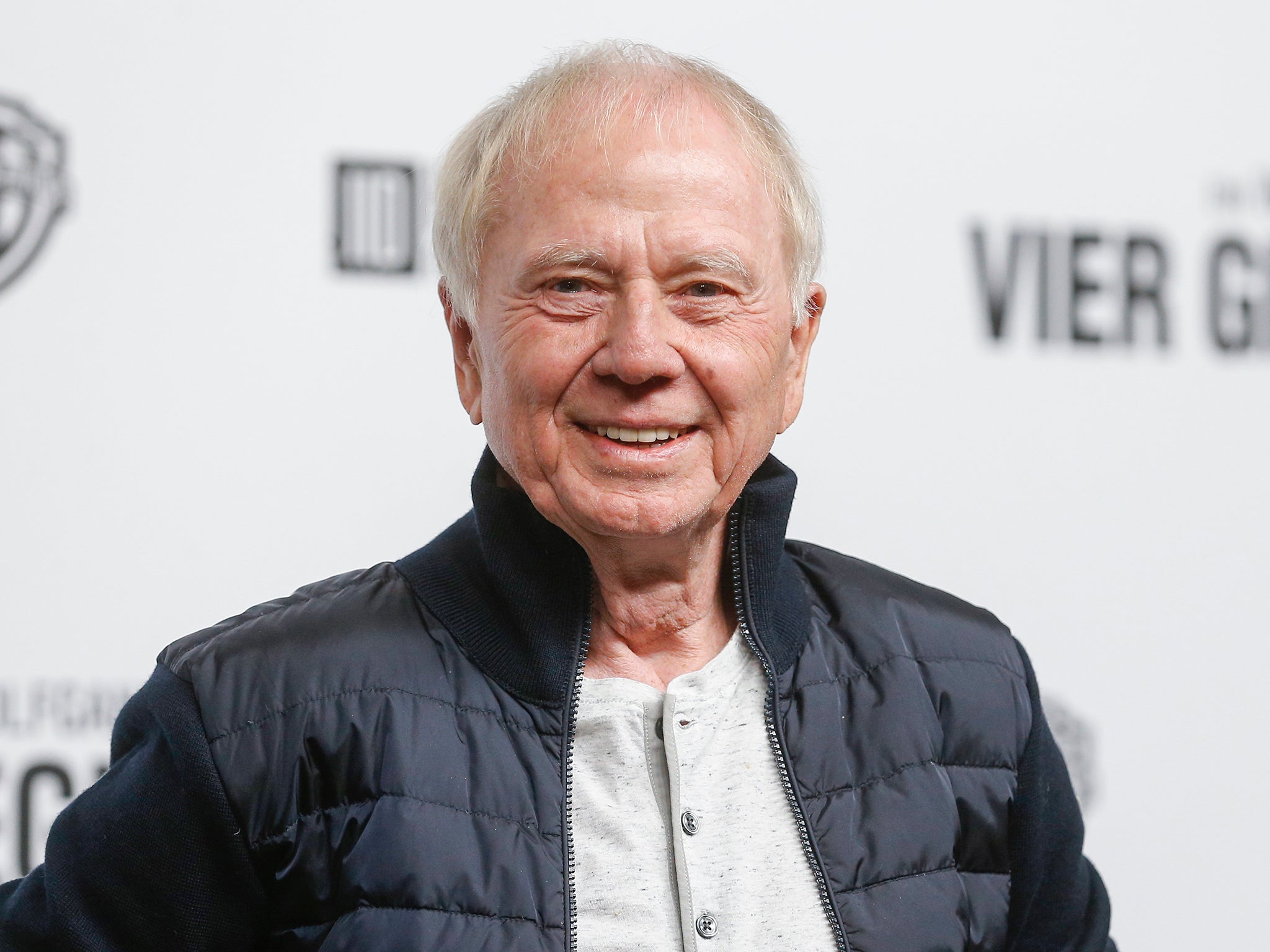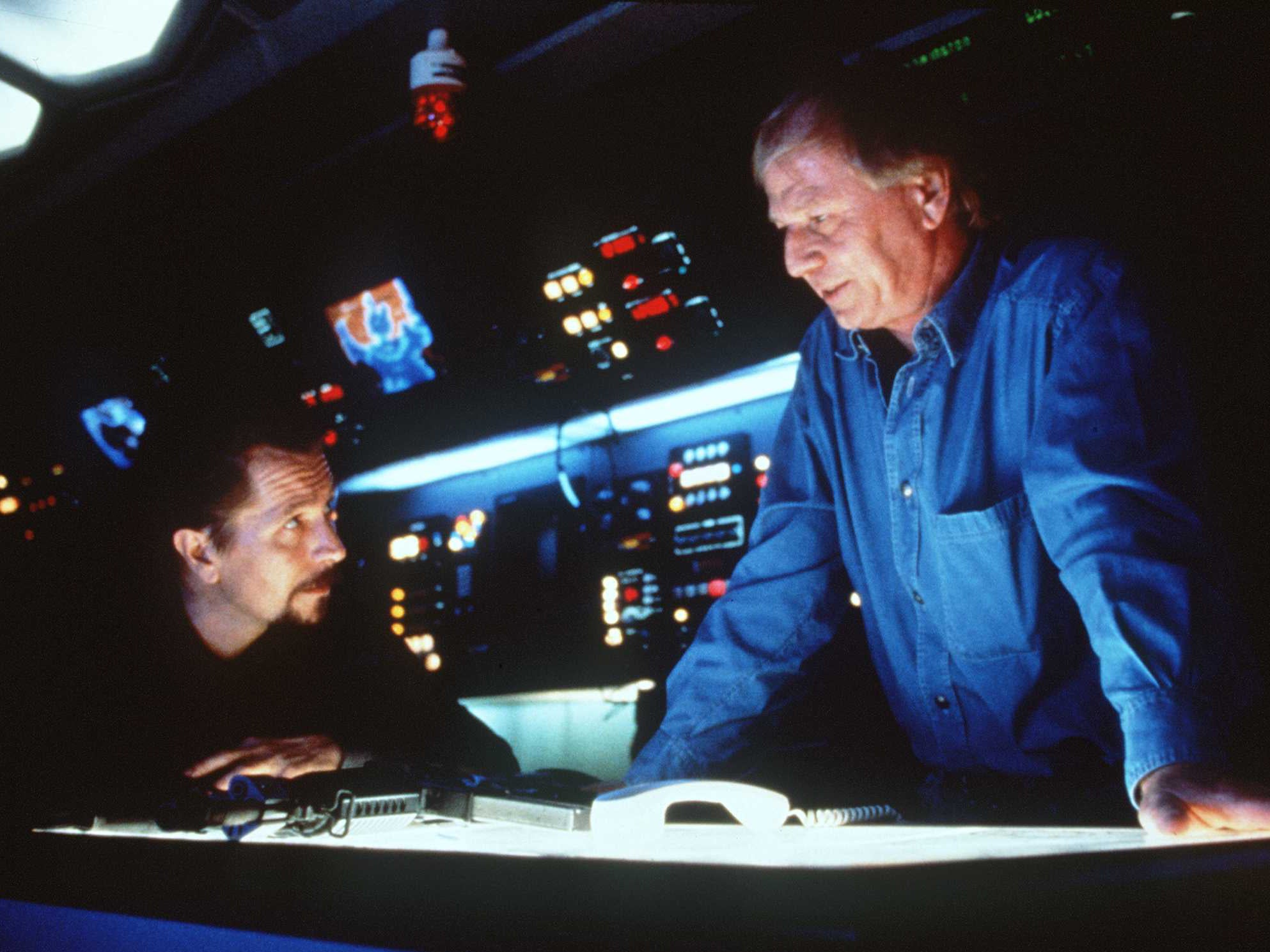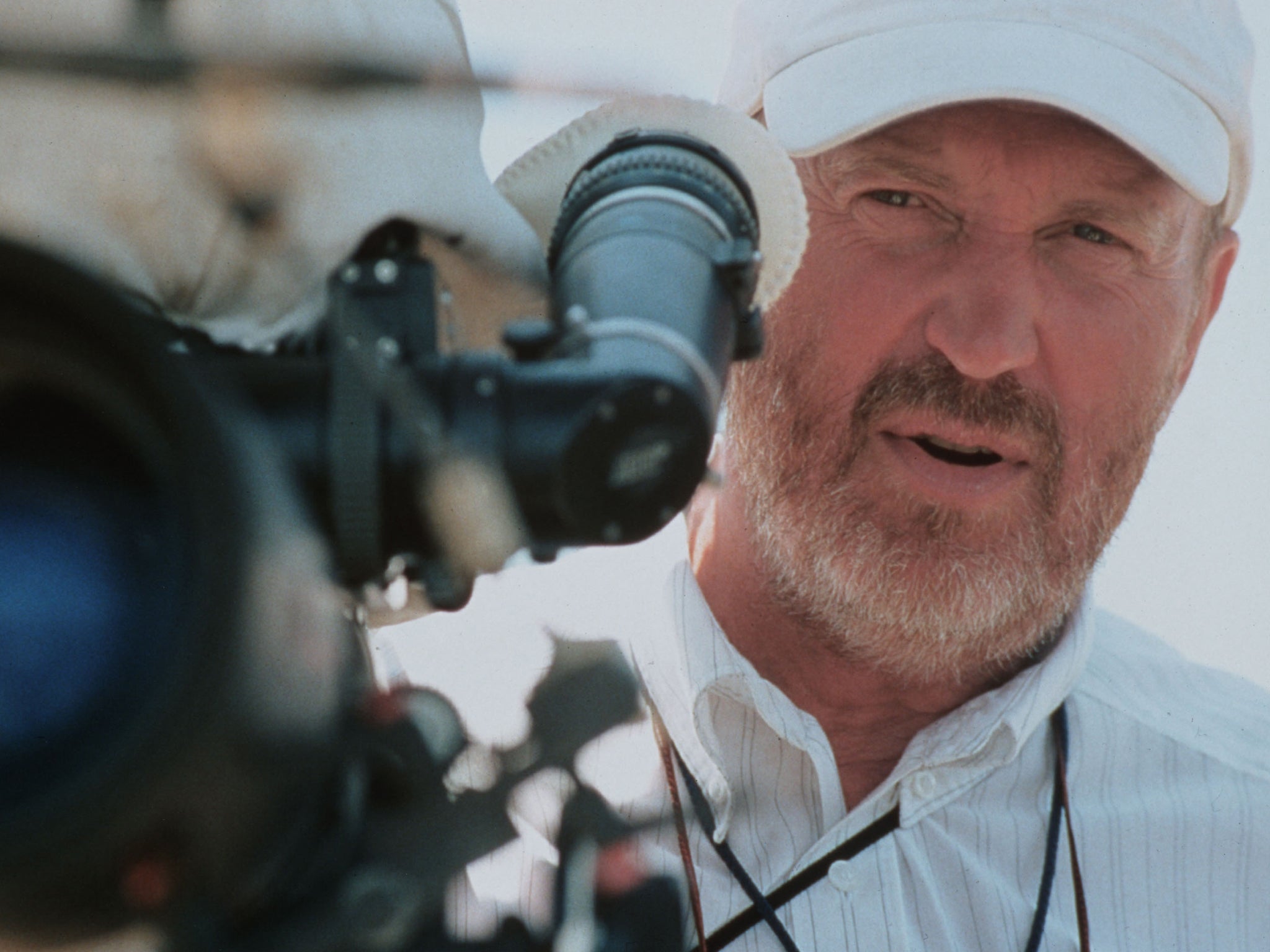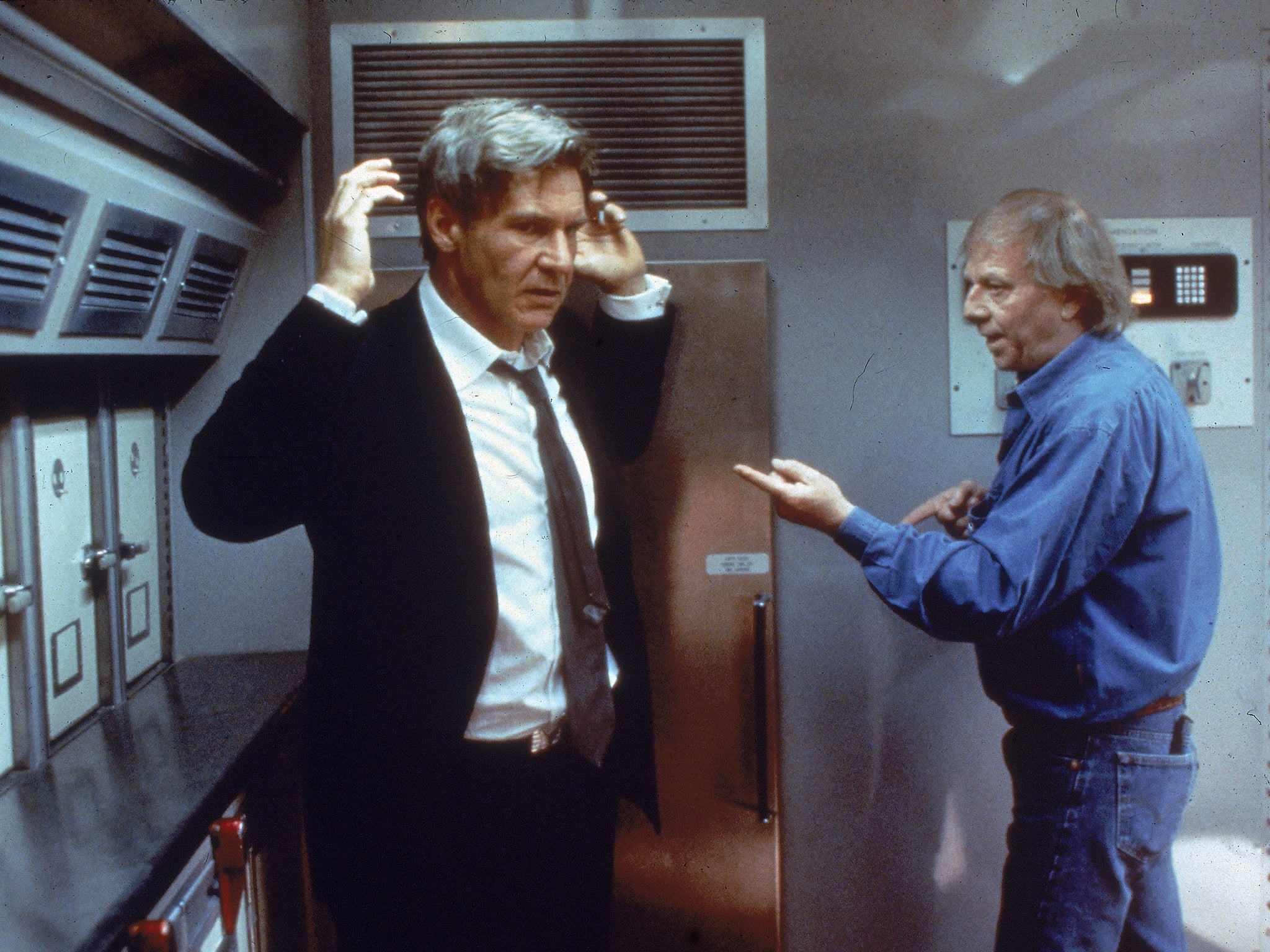Wolfgang Petersen: Oscar-nominated director of action movie classics
As well as earning numerous accolades, Petersen made a name for himself on the silver screen with films such as ‘Troy’ and ‘Das Boot’

Wolfgang Petersen, a German filmmaker whose 1981 drama Das Boot earned global acclaim for its humane depiction of U-boat sailors during the Second World War and who later had a long Hollywood career directing action-driven blockbusters including Air Force One, The Perfect Storm and Troy, has died aged 81.
After launching his directing career in the 1960s on West German television, Petersen was vaulted to international prominence by Das Boot (The Boat), a harrowing anti-war film that brought audiences inside a cramped, sweaty German submarine. “The film is like a documentary in its impact,” wrote film critic Roger Ebert, observing that there were sequences “when we feel trapped in the same time and space as the desperate crew”. He added, “Wolfgang Petersen’s direction is an exercise in pure craftsmanship.”
Petersen said he had initially worried about the film’s reception in the United States. When he went to the Los Angeles premiere, he was alarmed to see the audience burst into applause as an opening title card noted that 30,000 German submariners had died during the war. By the time the film ended, he told the New Jersey Record, “The audience was in tears, in shock, and totally turned around by the message: ‘OK, I know these guys were the other side, but if you cut through to the bottom, what war is all about is kids on all sides getting killed.’”
The film was nominated for six Academy Awards, with Petersen receiving an Oscar nod for his direction and another for his screenplay, which he had adapted from a novel by German author Lothar-Günther Buchheim. Das Boot grossed more than $80m (£68m) worldwide and reportedly became the highest-earning foreign-language movie ever released in the US, where Petersen went on to work with Hollywood stars such as George Clooney, Brad Pitt, Glenn Close, Dustin Hoffman and Morgan Freeman.
Even as he transitioned to big-budget action thrillers, Petersen sought to maintain a focus on intimate human drama in movies such as In the Line of Fire (1993) and Air Force One (1997). The latter made $315m (£266m) at the global box office and became one of the decade’s most popular action films.
He also ventured into fantasy with The NeverEnding Story (1984), his first English-language movie, adapted from a bestselling children’s novel by Michael Ende. After three years working on Das Boot, Petersen said he was rejuvenated by the film, which celebrated the power of imagination and featured a flying dragon-dog and a magical kingdom called Fantasia. “If people don’t dream any more, they won’t survive,” he told The New York Times, adding: “The whole idea of the film is that we need your imagination, your dreams, your wishes, your creativity to fight against all these dangerous problems in the world.”

Petersen later transported viewers to the world of Homer’s Iliad, directing the big-budget war film Troy (2004) starring Pitt, Eric Bana and Orlando Bloom. He seemed especially comfortable working from historical material and journalistic research, adapting Richard Preston’s non-fiction book The Hot Zone into Outbreak (1995), a medical thriller about the spread of an Ebola-like virus.
He later directed Clooney and Mark Wahlberg in The Perfect Storm (2000), based on Sebastian Junger’s account of a Massachusetts fishing vessel lost at sea. The film grossed more than $180m (£152m) at the box office and offered Petersen a chance to return to a maritime setting without having to re-enter the narrow tube of a submarine. Much of the movie was filmed in a specially constructed studio tank that helped Petersen create the illusion of monster waves threatening to capsize the Andrea Gail, which was tossed about like a toy boat.
“When the water crashes over the boat, we provided that with our dump tanks,” he told an interviewer with the Directors Guild of America. “The tanks were high up and filled with about 2,000 gallons of water. They slide down with enormous speed and crash onto the floor, and send mountains of water over the boat with unbelievable power. All 200 people on the stage had a wonderful time watching it, with the exception of the six actors on the boat.”

Wolfgang Petersen was born in Emden, Germany, a port city near the North Sea, on 14 March 1941, and grew up in an era of post-war deprivation. He often lingered with other young Germans at the harbour, in the hope of catching candy thrown by American sailors coming into port on warships he described in almost mythical terms.
By the early 1950s, his family had settled in Hamburg, where his father was a shipbroker, and Petersen embraced the American pop culture that had flooded Germany after the war – especially cinema. He hunted down every book he could find about filmmaking and used an 8mm camera to direct a western short with a few friends, paying homage to Hollywood tropes by including a card-game scene, a saloon fistfight and a high-noon shootout.

At 19, he became an assistant director at a theatre in Hamburg. He also studied acting at schools in Hamburg and Berlin before earning an apprenticeship for German TV in the late 1960s, gaining recognition for his taut direction of crime dramas and stories about obsession. One of his earliest feature films, One or the Other (1974), about a student who blackmails a professor, earned a national cinema honour. That he completed it on a budget of less than $1m (£850,000) also boosted his stature as a director who excelled under financial pressure.
Around the late Seventies, executives from Bavaria Studios persuaded him to make Das Boot, his first higher-budget film. Petersen insisted on unswerving accuracy to recreate the look and feel of a submarine, evoking what he described as “the smell of reality, the blood, the sweat and the tears, the claustrophobia”.

“We wanted to make sure every bolt and every screw in the boat was real,” he told the Silicon Valley newspaper Metro. “Our designers were obsessed with reality. I cannot imagine that almost 50 people spent months in one of these cigars without killing each other. That was our task, and the challenge: me and my cinematographer, Jost Vacano – we’d either kill each other or make a great movie.”
It took two years and hundreds of artisans to build two submarines and the giant machines that would jostle them to recreate an aura of fear and turbulence.
Petersen’s first marriage, to actress Ursula Sieg, ended in divorce. Survivors include his wife, Maria-Antoinette Borgel, who worked as an assistant director on several of his early films; a son from his first marriage; and two grandchildren.
Wolfgang Petersen moved into American filmmaking with a pair of box-office disappointments – the science-fiction movie Enemy Mine (1985) and the Alfred Hitchcock homage Shattered (1991) – before bouncing back with In the Line of Fire, which grossed nearly $190m (£161m) and earned John Malkovich an Oscar nomination for his performance as a CIA veteran trying to assassinate the president.
After the release of Troy, which grossed nearly half a billion dollars worldwide but received mixed reviews, Petersen directed Poseidon (2006), a big-budget remake of the 1972 disaster film The Poseidon Adventure. It was savaged by critics. Petersen professed not to care about bad reviews, saying that too often reviewers were snobbish about his movies, failing to recognise the fact that they kept viewers glued to their seats.
“I want to tell a story everybody loves,” he told the Times after the premiere of The NeverEnding Story. “Another director might say: ‘That’s my vision, and whoever understands it and loves it, fine. Whoever doesn’t, please go out!’ But that’s not me.”
Wolfgang Petersen, film director and screenwriter, born 14 March 1941, died 12 August 2022
Adam Bernstein contributed to this report
© The Washington post


Bookmark popover
Removed from bookmarks